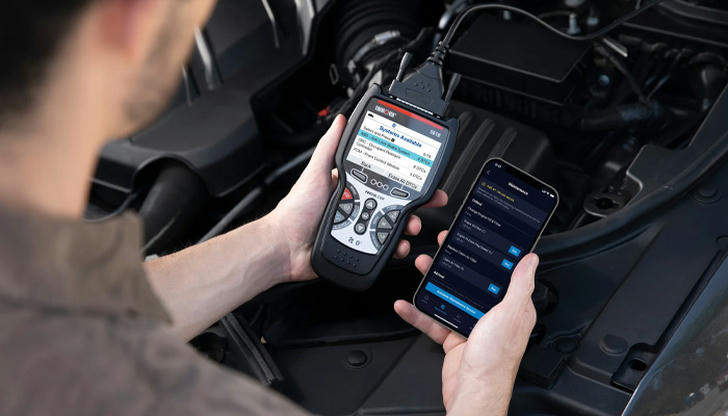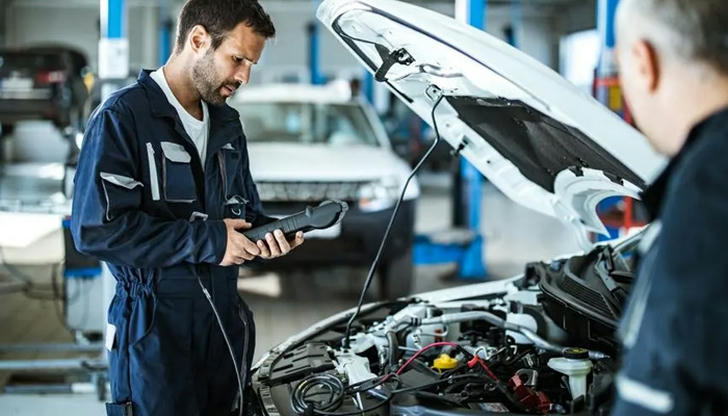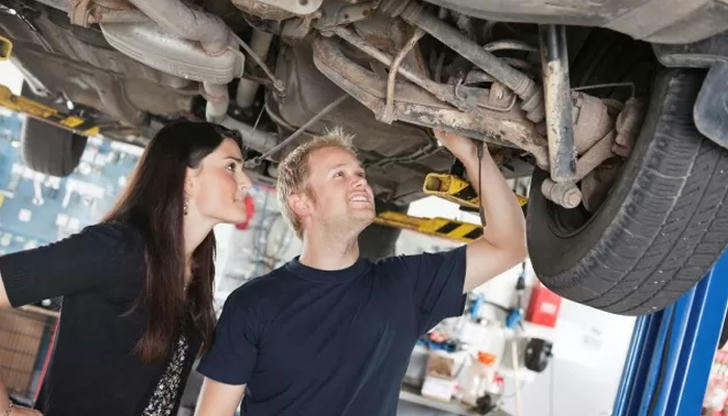Mechanic-Proof Your Repair Job: How to Outsmart the Shop and Save Big

Walking into an auto repair shop can feel a little like stepping into enemy territory. You hear words like "cylinder misfire," "full diagnostic," or "OEM vs aftermarket," and your wallet starts trembling. Even if your car knowledge is solid, that pressure to say "yes" to every suggested fix can get overwhelming fast.
But here's the good news: you don't need to become a full-blown mechanic to avoid getting taken for a ride. A little knowledge, a few smart habits, and the right questions can keep both your car and your bank account in good shape.
1. Learn the "Language" Before You Go

Mechanics aren't always trying to scam you---but they do speak a different language. And sometimes, confusion works in their favor.
For example, you might hear:
"Your brake pads are at 3mm---you'll need to replace them immediately."
"The serpentine belt is cracking. That's a big risk."
To the untrained ear, that sounds urgent and expensive. But in reality, brake pads are usually OK until about 2mm, and a cracked serpentine belt isn't always an emergency unless it's fraying or glazed.
What to do:
Before agreeing to anything, ask for measurements (like tread depth, pad thickness, or battery voltage) and compare to manufacturer recommendations. If you're unsure, a quick Google search---or even a free second opinion from another shop---can save you hundreds.
2. Don't Say You "Don't Know Anything About Cars"

Even if it's true, don't announce it.
Saying "I don't know anything about this stuff" might seem like an honest, humble move, but it can mark you as an easy target. Some shops may (consciously or not) pad the estimate or push unnecessary add-ons.
Instead, say:
"I've done some research on this issue. I'd love to hear your take."
That simple line makes you sound curious but not clueless---and helps keep the playing field more even.
3. Use an OBD2 Scanner Before You Go

Those little $20-$40 OBD2 code readers you plug into your car's diagnostic port? They're a game-changer.
If your "Check Engine" light comes on, plug in the scanner and write down the code (e.g., P0420). Then search it online before heading to the shop.
Why it matters:
Some shops charge $100+ just to "diagnose" an issue you can read yourself in 30 seconds. Even if you don't fully understand the code, knowing it gives you negotiating power. You can say,
"I pulled a P0420 code---what's your experience with this issue?"
That one sentence signals you're informed---and less likely to overpay.
4. Always Ask: "What Happens If I Don't Fix It Today?"

This is a magic question.
Mechanics often list five or six issues that "should be addressed soon." But they don't always clarify which are urgent vs. which are just on the horizon.
Your move: After they list the repairs, ask:
"What happens if I wait a month on this?"
This question helps you sort the must-do from the nice-to-do.
For example:
A worn tire with exposed steel belts? Fix it now.
A dirty air filter? That can wait.
5. Beware the "Bundle Discount" Trap

"While we've got it on the lift, we can also replace the X, Y, and Z---might as well do it all at once."
Sound familiar?
Sometimes, bundling makes sense (e.g., replacing all spark plugs at once). But shops often use this logic to push extras you didn't come in for.
Tip:
Ask for a written breakdown of each repair cost. Then say:
"Let me review this and get back to you."
Even 10 minutes in the waiting area to look things up can help you decide what's real and what's fluff.
6. Look for Honest Signals

Not all shops are out to get you. Some are honest, helpful, and downright friendly.
Here are a few green flags to look for:
They show you the worn or broken part before replacing it.
They explain repairs without rushing or using fear tactics.
They give you options based on your budget.
If a mechanic says,
"Here's what I'd prioritize if it were my car,"
---keep them. That's a rare and valuable phrase.
7. Get the Old Parts Back

This one's simple---and powerful.
Ask:
"Can I see the old parts after the repair?"
Not because you'll do anything with them, but because it tells the mechanic you're watching. Honest shops will have no problem with this. Shady ones might backpedal.
8. Build a Go-To Maintenance Cheat Sheet

The more you know about your car's real service intervals, the harder it is for shops to sell you services you don't need. Keep a cheat sheet in your glove box or phone with:
Oil change frequency (based on your driving, not a sticker)
Brake pad replacement range
Transmission fluid lifespan
Cabin/engine air filter intervals
Battery life expectancy
Most of this is in your owner's manual---but nobody reads that thing. A cheat sheet makes it way easier.
Final Thought: Confidence Is Your Best Tool

You don't have to be a gearhead. But walking into the shop with confidence, basic knowledge, and a few smart questions is more powerful than any socket wrench. You'll save money, avoid stress, and maybe even start enjoying the repair process just a little.
So next time your car starts acting up, don't panic. Mechanic-proof your approach---and you'll stay in the driver's seat the whole time.
